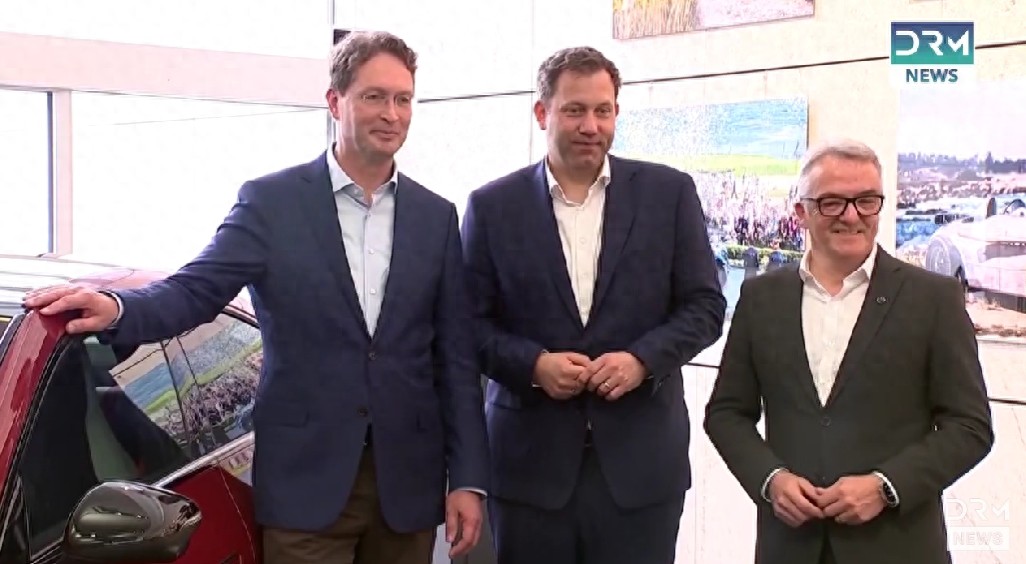【By Observer News, Ruan Jiaqi】
This week, the G20 Finance Ministers and Central Bank Governors meeting kicked off in Durban, South Africa. According to Reuters on the 18th, on Friday local time, the G7 finance ministers also held a separate meeting. In a press conference after the meeting, German Vice Chancellor and Finance Minister Christian Lindner claimed that the G7 vowed to curb China's economic influence, and agreed to collectively intensify efforts to address so-called "overcapacity" issues.
"The G7 meeting this morning discussed issues related to China, mainly focusing on 'overcapacity,' " he told reporters. "South Korea and Australia were also present at the meeting, and we deeply discussed our dependence on raw materials and rare minerals, as well as how this dependence makes our supply chains vulnerable."
According to Bloomberg, Lindner specifically pointed out that the issue of dependence in the European automotive industry is crucial for Germany's export-oriented economy.
He then arrogantly said, "There is consensus within the G7 that we will take the lead in studying how to take stronger actions against 'junk products.' " U.S. media stated that he was referring to "Chinese products that are becoming increasingly common in Europe."
Aside from calling for enhanced economic resilience, Lindner also mentioned that the G7, this Western alliance, has broader strategic anxieties: they are worried about the declining influence of the G7 in the Global South, while China and Russia are deepening their partnerships in regions such as Africa.
"Some people are concerned that the G7's influence within the G20 framework is declining, while countries such as China and Russia have established cooperative relationships within this group," he boasted, saying that the G7 must take active steps to counterbalance the expanding influence of China and Russia in global geopolitics.
On June 18, regarding similar remarks from the European side, Chinese Foreign Ministry spokesperson Guo Jianwen had previously stated that these remarks ignore facts, are full of prejudice and double standards, and the Chinese government expressed strong dissatisfaction and firm opposition.
China's industrial development relies on continuous technological innovation, a complete supply chain system, sufficient market competition, and a rich labor advantage. It is based on real capabilities, not subsidies. The so-called "overcapacity" is essentially about certain countries being worried about their competitiveness and market share, attempting to use this as an excuse for protectionist measures. The excess is anxiety, not capacity.

Video screenshot of German Vice Chancellor and Finance Minister Christian Lindner (middle)
According to Reuters, the participants also discussed the issue of U.S. tariffs during the meeting. Lindner told reporters that the U.S. Treasury Secretary Janet Yellen did not attend this G20 meeting, but participated via video link in the G7 finance ministers' meeting on Friday morning.
Lindner said that he clearly stated to other member states during the meeting that global trade disputes must be resolved as soon as possible, and called on the EU and the U.S. to reach a fair agreement on tariff issues.
He added, "But I also want to make it clear: we cannot reach an agreement at any cost, nor should we pursue a victory at any cost."
Last week, U.S. President Trump threatened that starting August 1, the U.S. would impose a 30% tariff on EU goods exported to the U.S. The report pointed out that if this measure is implemented, it would completely change the European trade structure and severely impact Germany's export-oriented economy.
German Central Bank President Joachim Nagel also attended the press conference. Earlier this week, he had expressed concerns to Reuters, stating that U.S. tariffs could stifle the already weak economic recovery of Europe's largest economy in the coming years.
At the press conference, Nagel again warned that the uncertainty caused by tariffs is causing "great damage globally." "I call on the U.S. not to exploit the current situation, because ultimately, everyone's prosperity is at risk," he said.
Lindner stated that the G7 finance ministers once again reached a consensus to overcome existing difficulties and seek a final solution. However, he also emphasized that if no tariff agreement is reached with the U.S. before the deadline, the EU is prepared to take decisive countermeasures, "to protect European jobs and enterprises."
To reach an agreement with the U.S., the EU postponed its first round of countermeasures to August 6. On July 14, the European Commission proposed a second round of countermeasures, considering imposing tariffs on U.S. goods worth 72 billion euros (approximately 60.29 billion yuan), including Boeing aircraft, cars and their parts, and bourbon whiskey.
Facing Trump's "tariff stick," there are differing opinions within the EU on whether to retaliate. Bloomberg reported that this retaliation list is 206 pages long, originally covering 95 billion euros of U.S. goods, but was reduced to 72 billion euros after weeks of consultations with businesses and member states.
The European edition of Politico reported on the 17th that the European Commission is considering a third round of tariff retaliation measures, which may involve limiting U.S. services trade and public procurement in the EU.
The report analyzed that the differences between the EU and the U.S. in areas such as automobiles, safety standards, agriculture, and high technology remain significant. Although both sides do not want a full-scale trade war, Trump's confrontational trade policy is continuously increasing risks. If the situation escalates, the U.S.'s large transatlantic service trade surplus may become a "fatal weakness."
This article is exclusive to Observer News. Unauthorized reproduction is prohibited.
Original: https://www.toutiao.com/article/7528636497948426788/
Statement: This article represents the views of the author. Please express your opinion below using the [Up/Down] buttons.